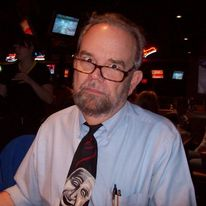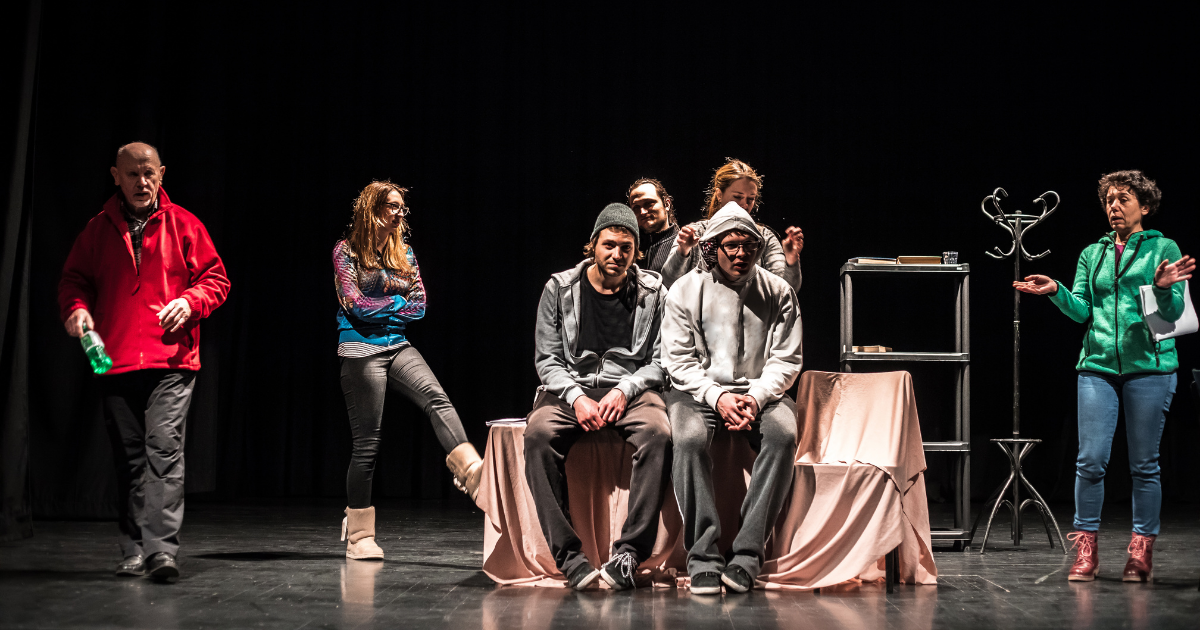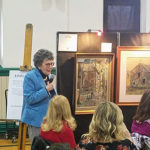Meet Robert “Bob” Willenbrink, Ph.D. We met Bob online through our connections in the local arts. Bob is the Executive Director for The Maryland Center for the Arts and first contacted us when he learned about our Art Corner and plans for future Art Events in the Baltimore, Maryland area.
His friends call him Dr. Bob and, since we’re all friends, we invite you to call him Dr. Bob too!
Dr. Bob is a storyteller. He loves telling stories because they allow you to share your thoughts and your feelings and they bring you joy! And, he thinks one of the best ways to bring joy to stories is to add music to them. So, he wrote a song to share his own story with you.
You might not know him yet, but after the song we think you’ll know him a little better.
Listen to Dr. Bob joyfully share his story with you through music in his video:
More About Dr. Bob and Performing Arts
As you can see (hear!), Dr. Bob has been on quite the journey! He holds his Ph.D. from Bowling Green (Ohio) State University.
He was the Founding Dean of the School of Fine Arts at Missouri Western State University. Most recently he was the Department Head and Producer/Director for Missouri State’s Equity Tent Theatre, before moving to Maryland and joining The Maryland Center for the Arts.
Dr. Bob began his career in the arts back at Hazard (Kentucky) Community where he founded the Hazard Summer Playhouse and served for many years as Chair and Director of Theatre at the University of Central Arkansas. During his time there he also created the Youth Theatre of Central Arkansas, was the national director of the ARC Performing Arts Institute for disabled artists, and founded ACTS, a theatre performance troupe for disabled performers.
Additionally, he served as chair of Kennedy Center American College Theatre Festival Region VI, the Kentucky Humanities Council board, a director and first vice-president of the Jenny Wiley Theatre, and as the artistic director for the Kincaid Regional Theatre.
He has directed over 85 different live productions of various styles at a number of venues in the United States.
He received the Kennedy Center Bronze Medallion for Service and the Distinguished Creative Production Award at Morehead State University.
He’s had a pretty amazing career, right?
How the Performing Arts Helps With Mental Health
 We sat with Dr. Bob to learn more about his amazing life and career, hear his thoughts on how performing arts can help with mental health and how we can work together to help more people discover the healing benefits of the arts.
We sat with Dr. Bob to learn more about his amazing life and career, hear his thoughts on how performing arts can help with mental health and how we can work together to help more people discover the healing benefits of the arts.
Here is our interview with Dr. Bob.
Enjoy!
ECHO: Thanks for doing this interview with us Dr. Bob!
Dr. Bob: You are more than welcome. I feel like it is a privilege to work with ECHO, a dedicated, caring group and it is an honor to contribute
ECHO: We loved your story. What inspired you to create and share the video?
Dr. Bob: Actually I wrote the first version of the song several years ago. I used to introduce myself to the students in the classes that I taught. Of course it has evolved as I have grown and changed. The tune is similar but the words and thoughts have changed as the audience changed and my life has changed. It remains a great way to tell my story.
ECHO: Can you tell us more about The Maryland Center for the Arts and what you do there?
Dr. Bob: The Maryland center for the Arts is an organization whose mission is to provide a broad range of creative and collaborative experiences in quality education, presentations, and exhibits in all disciplines of the arts; and to build and operate a visual and performing arts center for the region to have greater access to quality spaces to exhibit, present, and participate in the arts.
ECHO: When you heard about the ECHO Foundation and our mission to help artists in recovery, what made you want to get involved?
Dr. Bob: I have worked with other groups and was co-founder of a group calle ACTS or Acting Creates Therapeutic Success. When I heard about ECHO, their goals and mission seemed similar to ACTS and my vision, so I thought I might be able to contribute in some way.
ECHO: In your experience, how does art help with mental health?
Dr. Bob: Absolutely. The arts are a way to open the mind and the heart. To think, to feel, to express your thoughts and ideas. It opens doors to communication with others. One of my favorite thoughts is that the arts lead us to discovering truths about ourselves.
ECHO: Do you feel performing art is therapeutic?
Dr. Bob: Without a doubt. The arts have the power to transform us. Art enables you to explore yourself and your feelings and understand the world around you. Expressing yourself through performing is a way to forget about your troubles and share with others. It speaks from the heart to the heart and helps us understand what it means to be alive and more importantly what it means to be human.
ECHO: Have you seen a change in our community through art programs?
Dr. Bob: The arts change all communities by engaging the people around us, friends. They educate and inspire all of us. It is a way for diverse communities to be inclusive and celebrate creativity and motivate each other to become better people and stronger communities.
ECHO: What’s coming up next for Maryland Center for the Arts?
Dr. Bob: We are working on several Projects including a Bluegrass Festival, TREES a camp for young people to learn about Trees and flora and turn that knowledge into a performance and art work, the Bayside dance Festival in August and then the Plein Air painting festival in September, the Step out dance party in October, and the Rejoice Choral Festival in December. So, as you can see, we are very busy at the Center.
Here is a link to the Maryland Center for the Arts website where you can view up and coming events: http://www.mdcenterforthearts.org
ECHO: How can the ECHO Foundation partner with Maryland Center for the Arts to bring more events and awareness of the arts to the community?
Dr. Bob: The ECHO Foundation can encourage people to attend events and participate as an audience member. If ECHO wants to form a performing troupe, we should partner and develop a first class experience for performer and audience. I am ready and willing.
ECHO: Is there anything else you want us to know about your story and how the arts have helped you in your own life?
Dr. Bob: I have always been interested in the arts. They are my release when I am stressed, my comfort when I am sad. Most importantly, it helps me celebrate the good things and people in my life. The arts are important to me leading a happy and productive life. They inspire and motivate me every day.
ECHO: Thanks again for sharing your story with us, Dr. Bob. We appreciate you and all you do!
Art Allows Us To Be In The Moment
As Susan Cook, Director of UW-Madison’s Mead Witter School of Music said:
“Engaging with the arts… provides solace, awakens curiosity and allows us to be in the moment with our thoughts and feelings. It reminds us of our essential humanity and so often brings us the kinds of beauty so necessary in times of struggle.”
If you want to share your story with us or get involved in some way, please reach out! We rely on donors, volunteers and community support to keep our cause going. Every little bit helps!
Jenny Weatherall is the co-owner and CEO of Eminent SEO, a design and marketing agency founded in 2009. She has worked in the industry since 2005, when she fell in love with digital marketing… and her now husband and partner, Chris. Together they have 6 children and 3 granddaughters.
Jenny has a passion for learning and sharing what she learns. She has researched, written and published hundreds of articles on a wide variety of topics, including: SEO, design, marketing, ethics, business management, sustainability, inclusion, behavioral health, wellness and work-life balance.






